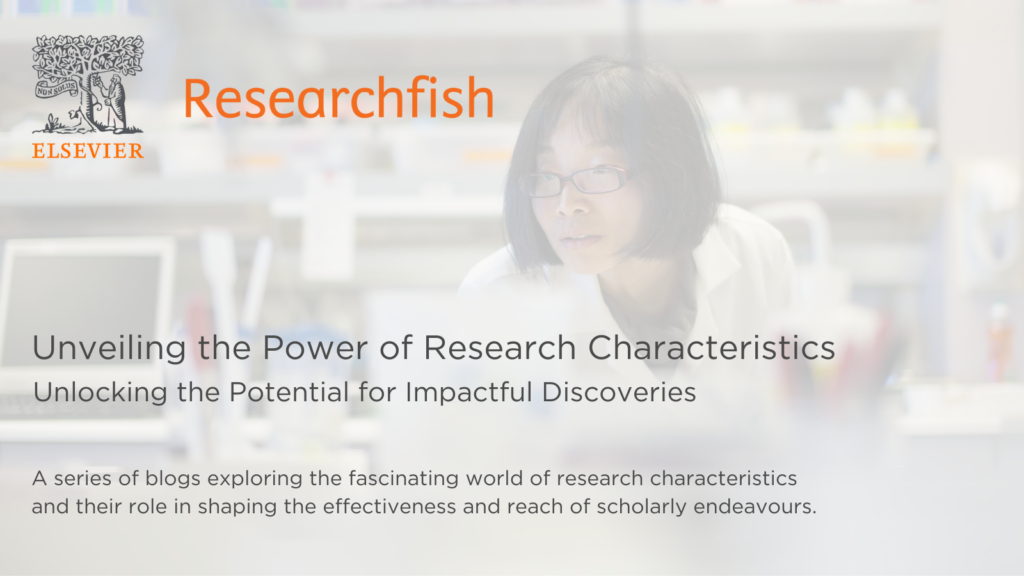
Welcome back to our ongoing exploration of research impact! In our previous blog posts, we discussed the significance and reach of research impact. Today, we turn our attention to another crucial characteristic: “Tangibility.”
Sean Newell
3: Tangibility
Tangibility refers to the concrete and measurable outcomes or changes that result from research. Join us as we delve into the importance of tangible impact and how it showcases the real-world value of research endeavours.
Definition and Explanation
Tangibility, as a characteristic of research impact, focuses on the tangible and demonstrable changes, improvements, or benefits that can be attributed to research outcomes. It involves identifying and measuring the actual impact on individuals, communities, organizations, or society as a whole. Tangible impact provides tangible evidence of how research contributes to positive transformations and makes a meaningful difference in various domains.
Examples that illustrate the tangible impact of research:
1. Health Tangibility: Medical research that leads to the development of new treatments or therapies can have tangible impacts on patient outcomes. For instance, a study that introduces a more effective treatment for a specific disease, resulting in improved survival rates or enhanced quality of life, demonstrates the tangible benefits of research in the healthcare field.
2. Social Tangibility: Research on social interventions aimed at reducing poverty can yield tangible impacts on individuals and communities. For example, a study evaluating the effectiveness of a microfinance program in empowering women and lifting them out of poverty provides tangible evidence of the positive social changes brought about by research.
3. Environmental Tangibility: Research on sustainable agricultural practices can have tangible impacts on food security and environmental conservation. For instance, a study that introduces innovative farming techniques leading to increased crop yield, reduced resource consumption, and improved soil health demonstrates the tangible benefits of research in promoting sustainable agriculture.
4. Economic Tangibility: Research on entrepreneurship and innovation can have tangible impacts on economic growth and job creation. For instance, a study that examines the impact of start-up incubators on local economies, demonstrating increased entrepreneurial activity and job opportunities, showcases the tangible economic benefits of research.

Challenges and Considerations
Measuring tangible impact can present challenges:
- Identifying the causal link between research and specific outcomes requires careful analysis and consideration of external factors.
- The time lag between research outcomes and the manifestation of tangible impacts can make it challenging to attribute causality solely to research efforts.
- Ensuring the sustainability and long-term effects of tangible impact can be complex, particularly in rapidly changing or dynamic environments.
Enhancing Tangibility
To enhance the tangibility of research impact, researchers and funders can consider the following strategies:
- Develop robust evaluation frameworks to measure and document tangible outcomes.
- Engage stakeholders and end-users throughout the research process to ensure the relevance and applicability of research findings.
- Foster partnerships with organizations and practitioners who can help translate research into tangible actions and outcomes.
Summary
Tangible impact is a vital characteristic that showcases the real-world value of research. By identifying and measuring the concrete outcomes and changes resulting from research, we can demonstrate the transformative power of research endeavours.
Join us in the next blog post, where we will explore yet another characteristic of research impact: “Novelty.”
Other blog posts in this series
- Introduction. Unveiling the Power of Research Characteristics: Unlocking the Potential for Impactful Discoveries.
- 1: Significance. Unveiling the Significance of Research Impact: Driving Change and Advancements
- 2: Reach. Reaching Far and Wide: Exploring the Reach of Research
- 4: Unleashing Novelty: Exploring the Power of Originality in Research Impact
- 5: Sustaining Impact: Exploring the Durability of Research Impact
- 6: Collaborative Synergy: Unleashing the Power of Collaboration in Research Impact
- 7: Transferring Knowledge: Exploring the Transferability of Research Impact
- 8: Engaging for Impact: The Power of Stakeholder Engagement in Research
- 9: Driving Change: The Crucial Role of Policy Relevance in Research Impact